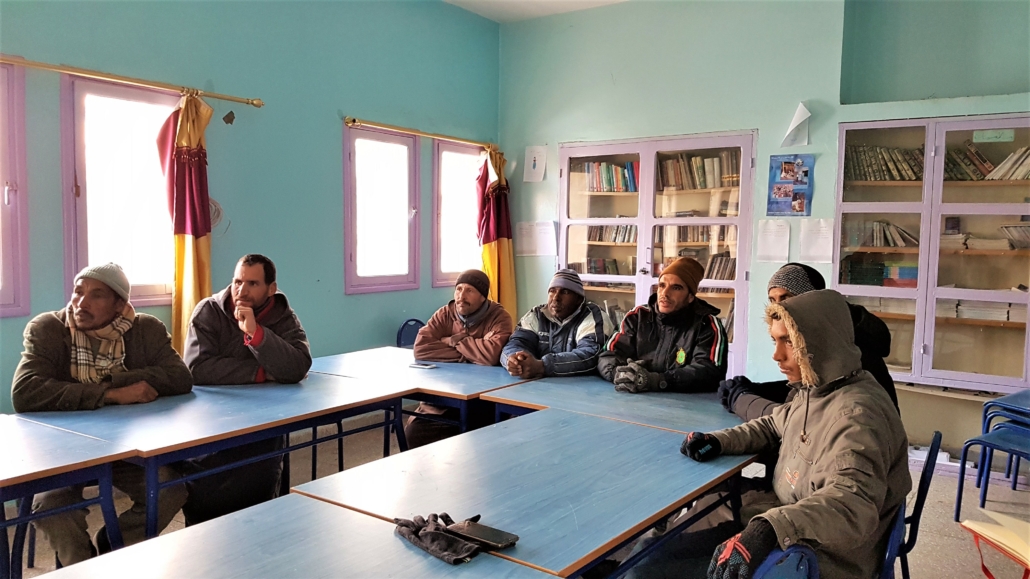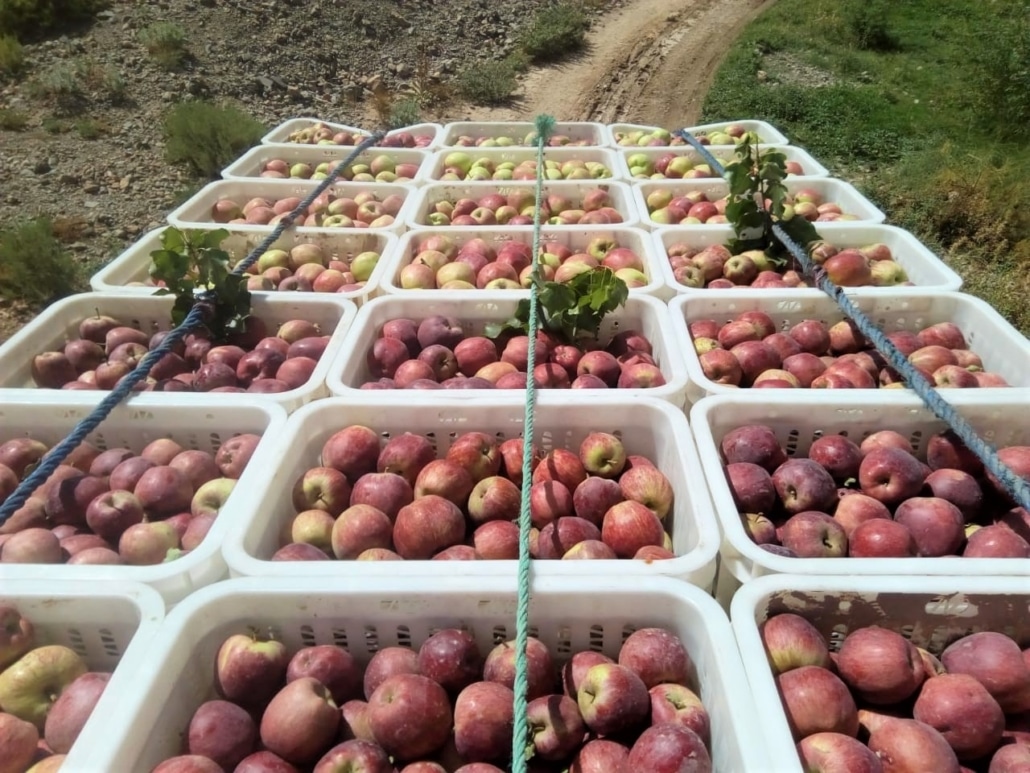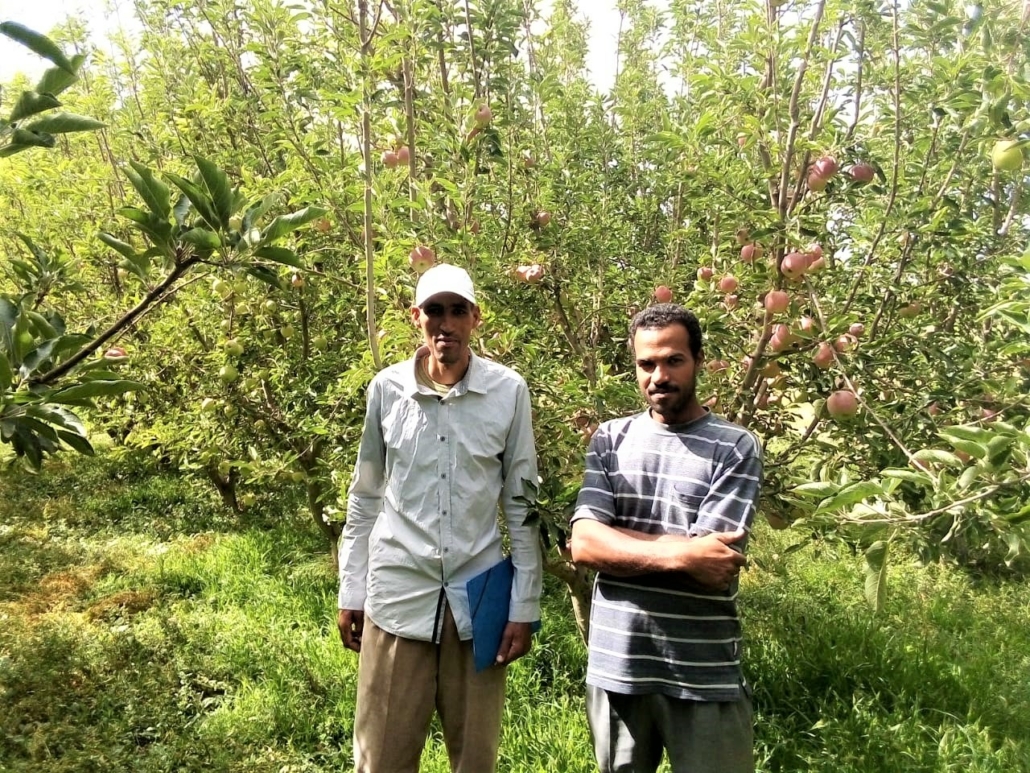Since 2017, Fert has supported a dozen Tighermatine fruits growers (Rich area – Central Grand Atlas) in order to strengthen their orchards management skills. In September 2020, 7 farmers formed the Tamknassete cooperative, the result of 3 years of local animation with Fert.
Through local animation set up several years ago and exchanges with other farmers in the Rich area who are also supported by Fert, the Tighermatine farmers have recognized the importance to organize themselves collectively in order to share their efforts and resources.
The farmers who formed the Tighermatine cooperative identified a series of common problems that they could tackle together. These difficulties mainly concern the technical management of orchards, the supply of inputs and the commercialization.
Words from Tighermatine’s farmers
“The sale of apples is our main income, we have to sell a crop standing, even at low prices (2 MAD/kg), because we have neither the cash flow, nor the financial means to harvest and store them.”
“We don’t have a good grasp of orchard management practices. Hence, our calibres are heterogeneous and there is disease and pest damage.”
Fert supports this young cooperative in its strategic thinking as well as in the definition and prioritization of its projects. The fruit growers of Tamknassete are currently thinking about several projects:
- To improve the production and quality of their apples by adopting a better grasp of thinning and the technical conduct of their orchards. A good grasp of techniques will allow them to improve the quality of their apples and to access more remunerative markets. The cooperative wants to continue and develop technical support for farmers with Fert and to formalize a partnership with the Rich agricultural advisory center.
- To share input supply by negotiating joint purchases of inputs with a distributor of phytosanitary products approved by the ONSSA.
- Improve the valorization of apples by negotiating prices with intermediaries. The members of the cooperative intend to learn from the experience of farmers in the village of Aït Bouchbout. The latter negotiate with the buyer, before the harvest, a unit price at the box of apples. The total price of the plot is thus determined after the harvest, based on the effective number of boxes harvested.
- Facilitate commercialization by developing a box rental service. The cooperative would offer more flexible rental conditions than private renters, thus compensating for members’ cash flow difficulties and the low availability of rental boxes in the area.
- Gradually support members towards a diversification of the varieties of apples cultivated to best meet demand.
Words from Tighermatine’s farmers
“We are small farmers, we don’t have any guarantees to give to the rental companies: we don’t have a bank account, we don’t have capital, we don’t have cash-flow… Without boxes, we have to sell our crops standing.”
“We know the intermediaries propose us low prices, but the heterogeneity of our crops, their quality and the lack of experience in commercialization are currently preventing us from being able to negociate the selling price.”
The member farmers, who are very invested, have already discussed future projects for the cooperative, such as the development of a production owned by the cooperative on collective lands where apples and aromatic and medicinal plants could be produced.
They have also mentioned services they could, , propose to the members in the future, including the valorization of alfalfa, which is very much produced by the farmers. This alfalfa is sold at low prices to intermediaries, therefore, the cooperative is considering the way to valorize this alfa in order to commercialize it collectively directly with the farmers.
Words from Tighermatine’s farmers
“The sellers of phytosanitary products mainly offer us products that give them a greater margin, products that are often very expensive for us. In addition, sometimes these products are ineffective in combating the phytosanitary problems that our orchards suffer from.”
Beyond agricultural advisory services to arboriculturists, Fert will be able to support this young organization.
Fert operates in Marocco in parternship with IECD-Marocco.





